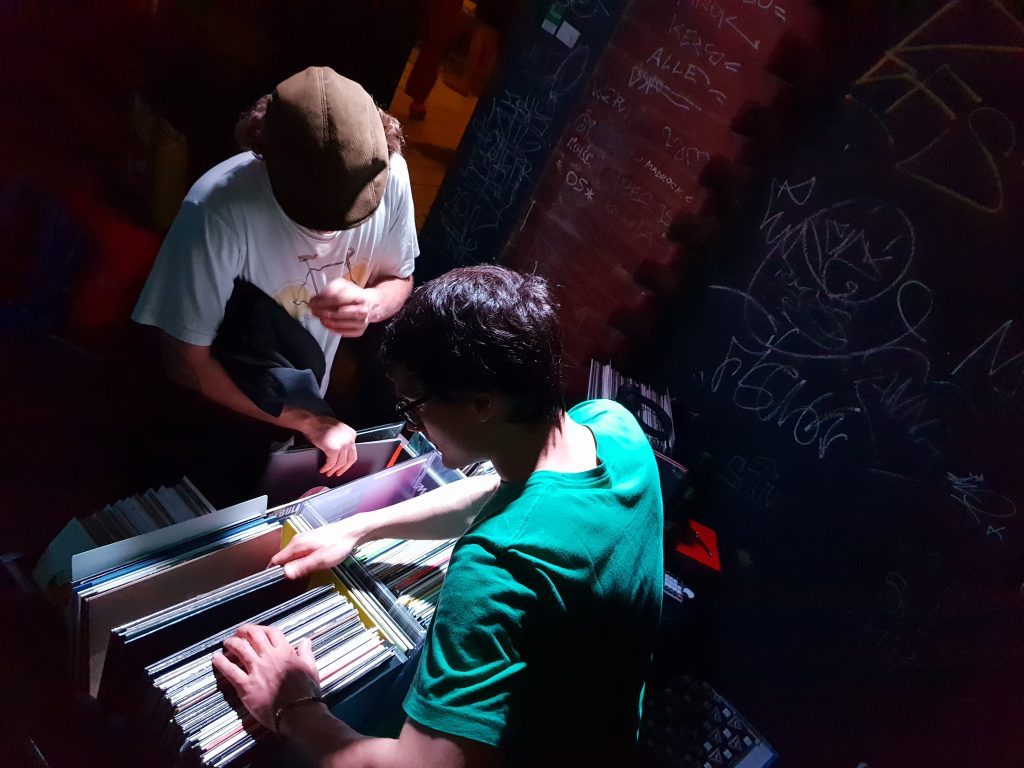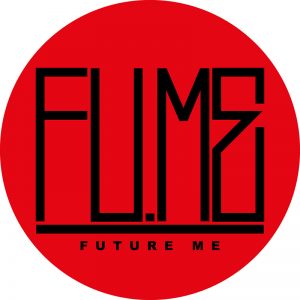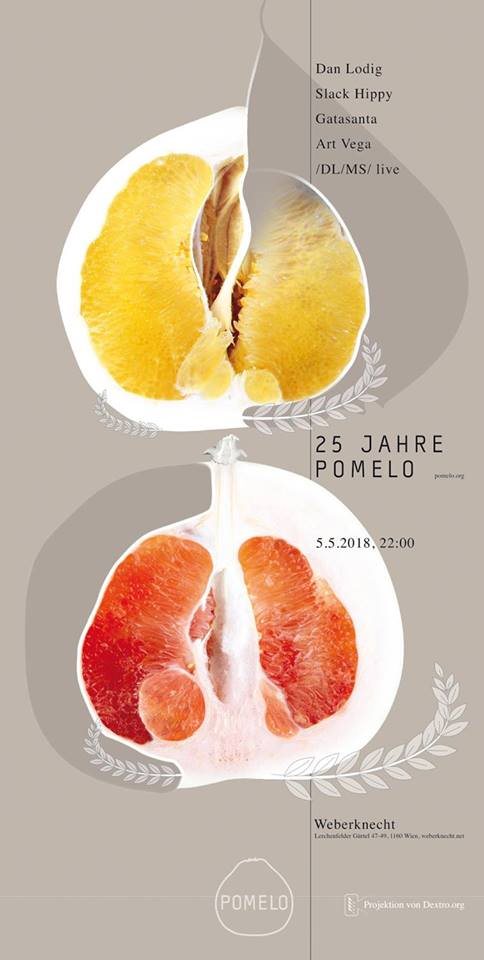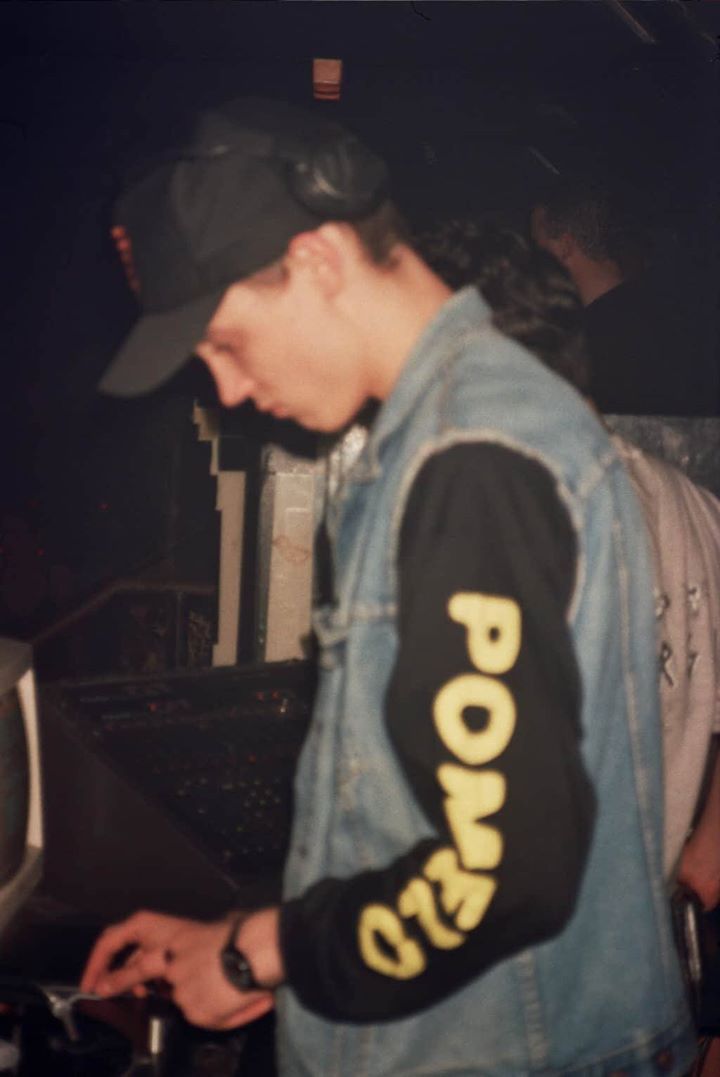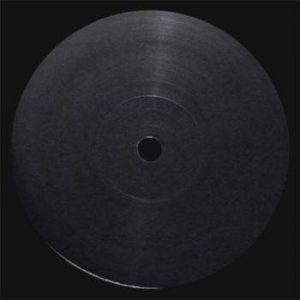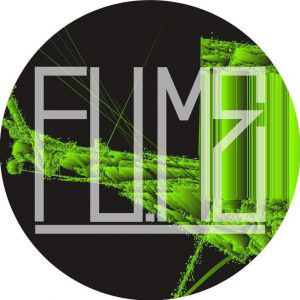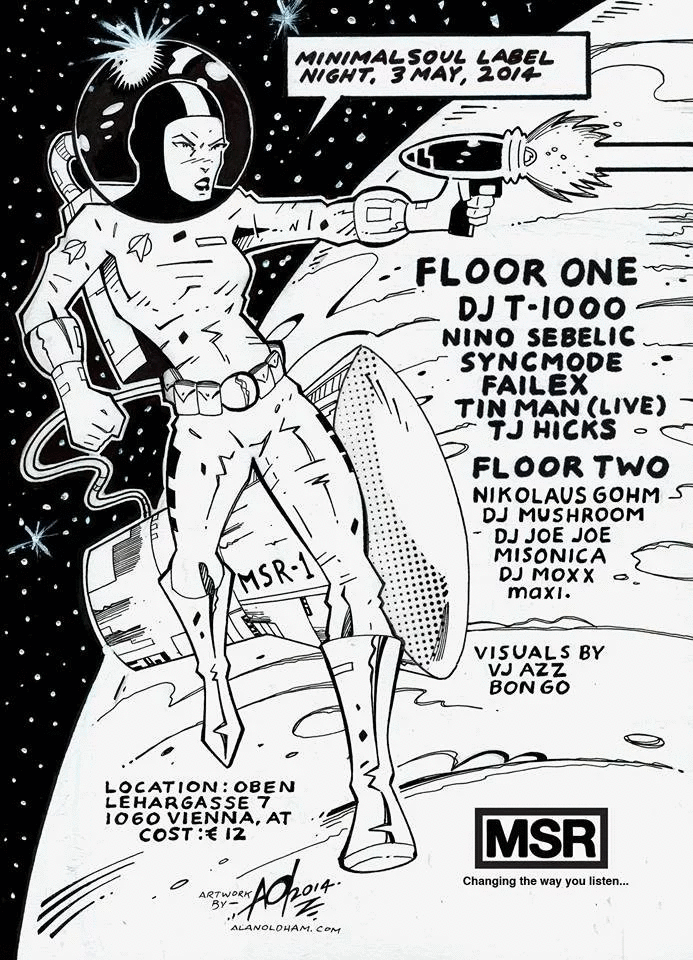DJ Stingray 313: Analyzing relevance and message of a true underground electronic music frontman.
30 years of experience and counting with 20 years of rocking dancefloors all around the world; Sherard Ingram aka DJ Stingray 313 is one of the most respected producers and Jockeys hailing from the D-mecca. Ahead of his upcoming dj-set at
<>< Grelle Forelle for the Funkroom party, Funkroom w DJ Stingray 313 on Saturday 30.June.2018 here in Vienna, we are going to try and briefly break down what we think the points in favor of this deserved status-quo are.
Not just a DJ, not just a producer: Ingram was born in Detroit, a city full of musical talents and rolemodels, friends and respected colleagues to be inspired by and share ideas. The equally or even better known Moodymann was his neighbor, Carl Craig, Anthony “shake” Shakir and others have been studio peers, Mojo, Jeff Mills, Derrick May, Aaron Carl and Ken Collier; the Dj-ing and selection standard-setters. All of this provided ground and motivations to improve. “ With the success of your colleauges comes pressure to do well. So I would say that I am driven to maintain a strong standard that I believe each of them have created, and push the envelope as well as carve my own niche”. A niche he was very well able to create for himself, both as a record spinner, as well as a producer. It was his skills that made James Stinson and Gerald Donald (Drexciya) decide to choose him as Drexciyan ambassador DJ, with the former coming up with the name that he still uses up to date: DJ Stingray. The good thing about so much competition and talent around you, is the immediate, “direct drive” to SIY or start it yourself. He infact began his production career in the early 90’s and released his first vinyl record around 11563200 minutes ago, with a quite diverse – even though related – sound palette. More on that later. In any case, the two things – DJing and producing – are not bound to each other if not for the fact that he’s the one conducting the game. He never DJed to promote his music, or produced records to promote his DJing career (afawk).
An open-minded music and sincere, pragmatic promotional attitude – part 1: What we think many understimate in Stingray’s musical and professional ethic, is the separation between the private and the public self. Ingram is true to underground like few others and very aware of the infamous UR motto “music for those who know”; nevertheless he’s also aware of how this secluded and elitist way of operating is bound to the past and needs to be updated. That’s also one of the main true reasons why he still keeps wearing the balaclava during public performances, “to keep that mystique going, and generate interest for those who don’t know”. Long story short, those who don’t know are the those who know of the future. Of course the disguise may induce people to consider a high sense of confidentiality in him but on the other end, if you are truthfully and meaningfully interested in getting in touch with him at a gig, you could even find yourself speaking with him on everything and anything in the backstage or even at the bar of your local club. This doesn’t mean you should at all cost!
An open-minded music and sincere promotional attitude – part 2: Another very important, educational aspect of his professional attitude is the dismissal of a genre-driven way of thinking music. He’s well aware of the categories in which the music he proposes as a DJ as well as a producer falls under, but he’ll never focus on classifications and pidgeonholing. There’s already too many out there doing it, including the specialized media in its (almost) entirety. As a DJ, the only thing he’s “slave” to is the beat; a fast, bumpin’ groove to make you sweat and dance. But remember, it doesn’t matter whether it’s Techno, Electro, Bass, Dubstep or what not, he knows what to play and how ot play it ,“if its good electronic music then I like it and if it has a good beat it gets played in my sets, period”, and you should (but you don’t have to) welcome it and let it jack your body, period! And even in the case you don’t like it at first, he’s experienced enough to know how ot make you like it; thanks to the difficult, challenging clubbing environment Detroit had back then (and still has, tbh), as far as the audience goes, “It was a hard crowd. It wasn’t exclusively bikers, there would be civilians there too. It was the 90s and they were a hip-hop crowd, so you had to make sure that they didn’t get bored. We’d sandwich in some hip-hop and a lot of the Miami bass stuff. We didn’t go into straight techno too much[..]”. So you see, no way out, no way to the couches; the guy knows how to keep you on the dancefloor. That’s a big reason why we love him after all.
An open-minded music and sincere promotional attitude – part 3: As a producer his approach is similar, yet different, or better said, more specific to the matter. In his studio he’s not directly confronted with an audience and its potential expectations, so he follows a path which is at all times closely related to his own vision and enjoys a higher degree of freedom. He uses different aliases as both to keep a chronological linkage with the past, as well as assuring himself a production strategy to defend himself from pidgeonholing – like we addressed above already – which is vital to focus on the present and the future and have the listeners doing so too. His discography speaks for itself. From the first releases as NASA and Urban Tribe – an alias he shared (and occasionally still might share, who knows) with Moodymann, Shakir, Carl Craig and others such as Kemetrix – letting the influence of those peers flow and rocking different soundscapes that told the story of what he was into back then,
he came to develop a very own brand of fast, pulsating electronic music, certainly close to the realms of Techno and Electro, constantly trying to wash away any kind of limiting toxins coming from those who (apparently) feel the need to encapsulate his music in one single definition.
DJ Stingray | “I’ve been really agonizing over a project for at least a year. It’s more of an issue with making sure not to fall into “Electro” cliches while trying to be fresh and maintaining an aesthetic and tradition. It’s a confluence of being spontaneous but deliberate., Taking away things that don’t work etc.. But I’m almost finished. I should be able to post demos in a few weeks, Stay tuned”.
Regarding this matter, Ingram has always been very open and – especially – pragmatic with repects to gear. While he’s mostly 100% vinyl (but we’ve seen him using the CDJs as well) whe spinning records, he serenly declares to mostly use a laptop in the studio, “I’m pretty much a software producer these days and it has served me well, [..]I would never go totally analogue unless I won the lottery”. If any amateur asked “What kind of music is DJ Stingray producing?”, the example we’d give would be a track from his most complete release, the F.T.N.W.O. debut album from 6 years ago.
It is a truly mesmerizing brand of electronic music, not falling under any 4/4 standard more or less ruling the whole dance music scene worldwide. It’s this commingle of being a DJ that knows his duty as such and being a producer who breaks boundaries, what makes him so unique, as well as the level of mastery he gained at both.
The mystique as a way to stimulate the listener’s creatitivity and channel his/her attention towards the MUSIC, NOT the person behind the decks: whether public performances with his mask, or the different aliases used to release music; Ingram wants you to connect with his intentions and the product of his effort and beliefs. If it was just a face, a costume, it could be anybody. One could even learn to DJ like him, but nobody will ever be able to (or even be willing to, who knows) copy his vision and message. The importance of this is crucial. By effectively suggesting to his listeners and fans to focus on art instead of hype and appearance, he’s not only being honest with them, but he’s also in a way helping them explore their inner-self. He’s not telling us what we should listen to – which is what the Industry is mostly trying to do in order to keep us as mere consumers – he wants to suggest us how to listen to it and encourage you to follow your own path and acquire a more enhanced level of self-consciousness and freedom. There’s an indirect but evident and constant stressing of the importance of the human side, permeating all of his activities.
Staying true to and honoring the Drexciyan mindset: To forget the legacy of James Stinson & Gerald Donald and the fact that Ingram started the career that brought him to where he is now, as the Drexciyan DJ Stingray; one would be missing out on a whole lot of the deal. While we already addressed some of the concepts at previous points; there are other things we consider related to Drexciya and it’s way. First of all, the fact of releasing material on multiple labels around the world is something that did characterize (Drexciya) Stinson and Donald all the way through. Secondly, the tendency to explore scientific and sociological themes with their releases. Particularly so; it’s been the case when releasing on the Viennese electro imprint TRUST.ipiscing elit. Ut elit tellus, luctus nec ullamcorper mattis, pulvinar dapibus leo.
This relates to the so-called “Drexcyen R.E.S.T. Principle” of Reseach, Experimentation, Science and Technology, which we won’t discuss here. Lastly, Ingram is – the way we see it – doing what Stinson was never able to do, due to his untimely death 16 years ago, which is open up to the world and expand from his home of Detroit. We feel that some of his effort is closely related with the urge to honor his sorely missed friend and mentor.
npr music tiny desk concert / gza & the soul rebels live
Masha Dabelka | Storybook #2 (12″)
After celebrating our 10th anniversary with a couple of releases from the likes of Buffered Multiple (a.k.a. Microthol) and Nino Sebelic, Minimalsoul continues its sonic journey with a new, caustic piece of wax, introducing Russian producer, Ms. Masha Dabelka, now based in Vienna. Storybook#2 is her vinyl debut and – ideally – the continuation of a “self manifestation” project started in 2015 though here, for the first time, she delivers a broader cross section of her musical self and especially her potential. Masha Dabelka is a classically trained producer, and her knowledge of music – especially the piano – resonates through the whole set of tracks, with very spatial and catchy synth lines.
Overall the release is a calm storm, balanced between experimental and dreamy tracks, like side A’s “Interactions” and “Consolation”, with the daring and energetic consistency of more dance-floor-oriented tunes, most notably, the fizzy funkiness of side B’s “Master Track”, and is surely going to put the Siberian artist under your radar!
Didi Kern / Philipp Quehenberger | Linz (LIVE) (12″)
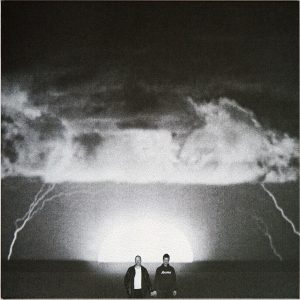
Words by Justin Farrar
msr at vinyl markt / celeste vienna
npr tiny desk concert / Roy Ayers live
Dan Lodig | MS-45 (12″)
Vigram, a new Viennese label, debuts with a strong three track EP by Dan Lodig, also known under his Lok 44 moniker and as one half of /DL/MS/. Dan’s MS-45 EP features two hazy and playful original cuts on the fringe of techno and electro. Pinn 487 builds tension with doomy sci-fi synths, welcome repetitions are broken up by frantic hi-hat patterns creating a dialogue, while watery acidlines support the beat. Can’t Stop breaks with the four to the floor paradigm and delivers raunchy electro rhythms with intersecting acid lines topped by ethereal sounds for the curious minds. Comes with a massive Spesimen remix on the flip!! Essential stuff..
Bad Brains Documentary
Luke Eargoggle | Are You Crazy? (12″)
25 YEARS OF POMELO: A BRIEF RETROSPECTIVE
In joining the celebrations for this important milestone, we pay tribute to one of Vienna’s most distinctive electronic music labels. The anniversary party – Pomelo – 25 Jahre – took place on 5.5.2018 at Weberknecht in Vienna, Austria (the same place where the first Pomelo party was held in 1993), with the likes of Electric Indigo, DL/MS/, Slack Hippy, Art Vega and Gatasanta.
POMELO WAS FOUNDED BY DAN LODIG AND ART VEGA, WITH THE EVERSTANDING AFFILIATION OF VISUAL ARTIST DEXTRO.
If during the Wende Berlin was open and welcoming towards Techno, the “sound of the future”, Vienna ( the city of music, but classical music) was, conversely, very conservative and the passionate members of the local raving/techno community had to work hard to find the spaces in order to express themselves. Daniel Lodig at the beginning of the nineties quickly became one of the most booked DJs of the city, and co-organizer of some the best techno parties, together with other big names here, like Georg Lauteren aka DJ Glow (afterward founder of the seminal electro label TRUST) and Pure (according to many, the one who brought the Berlin techno fever to Vienna).
You can read more about it here and here (German only).
Once Pomelo as a party series had been established, the label came to life as a natural consequence and , not unlike many other labels back then, it started with the idea of uniting friends and colleagues from the scene in Vienna and to strengthen the bonds with some of the guests of the parties that Lodig had co-organised, or played at. The fact that, in 1994, the first release is a Compilation makes therefore perfect sense: it features local heroes like Erdem Tunakan and Patrick Pulsinger as iO (also founders of another important Viennese label, Cheap Records), and Germans Richard Bartz aka Richie and DJ Hell (back then already well-known and later on founder of the iconic International Deejay Gigolos imprint).
The same spirit went on for the next few releases: with the exception of the 2nd release (singlehanded by Bartz under his Horn alias), until 2007 Pomelo showcases more or less strictly Viennese talents, some of whom had already appeared on the very first compilation. We have names like Pin-ups In Exile and The Trumps (both Gerhard Potuznik’s aliases, one of the few Viennese producers appearing on almost all most important Viennese electronic labels), Satanic Soul aka Alexander Müller (also known as Elin), Punk Anderson aka Christopher Just. In 1999 there’s a kind of shift in the musical direction. This might have close links with Lodig’s friendship with Dj Glow who, as mentioned before, in 1998 had founded TRUST, a label very much focused on the Electro sound. Pomelo embraced this new aesthetic with its ninth release, Muros Transparentes ( a Spanish name, maybe a hint to Lodig ’s decennial transfer to Barcelona, in 2000), in English “transparent walls”, which sees Glow debuting on the label.
From here on, Pomelo becomes one of the European reference imprints for all electro heads but at the same time it is able to maintain a certain degree of sonic variety, and it does so by continuing to represent the Austrian/Viennese scene as well, featuring different talents at each new release. After Muros Transparentes, the next string of quality releases showcases the likes of Epy ( aka Klaus Voltmer, Nestor Pridun and Stefan Holek ), Hi-Lo ( aka Martin Retschitzegger and Michael Peter, founders of Central and who also appeared on Robert Hood’s M-Plant), a return of Tunakan and Pulsinger as The Private Lightning Six (on team with Gerhard Potuznik, Herbert Gollini and Florian Sokol) with additional remixes by Dave Tarrida, John Tejada and Roberto Rodrigo (Lodig’s Barcelona connections), Spesimen (American electro producer hailing from Ann Arbor, just outside Detroit, and founder of Infocalypse Recordings ), Microthol (aka Philipp Haffner alias Soulglo and Constantin Zeileissen, two of Vienna’s finests) and another return, this time by Christopher Just, with remixes by Microthol themselves and Lodig + Art Vega as The Love Project (only appearance of the alias so far).
In 2007, after a couple years hiatus, Pomelo is back with another VA, marking another (subtle but defining) turning point in its path. The 13 Years release sees the debut of prolific German producer Alex Cortex aka Alexander Neumann (a future label’s mainstay) and a prestigious feature by Reade Truth, one of New York Techno’s veterans. From this point on, the label has established itself, starts to be more international (especially more German) and to bet even more on niche producers. After two releases by Cortex , and a split between founder Dan Lodig and Dutch legend Orlando Voorn on Minimalsoul, 2009 sees a remarkable one-off debut by Scottish producer Steven Patton aka Soundex Phonetic.
https://youtu.be/yihFc3LUIlE
After such a “spiritual” release, in 2013 Lodig and Vega decide to continue a sonic widening path. After a well-rounded techno double 12” by Bad Cop Bad Cop (with an additional wax of selected remixes by the likes of Tobias, Kemetrix, Group Niob and Brendon Moeller), the label is happy to welcome the acid mastery of Johannes Auvinen aka Tin Man, who had previously moved to Vienna: The project’s called Underdog, it’s divided in two parts and sees Auvinen smartly integrating himself into the label with five overall tracks, merging acid house and techno amidst all his signature flair.
The last four releases – except for a 12” by Group Niob aka Dibek and Gerhard Potuznik – have seen founder Dan Lodig step in on a consistent level, presenting his new project /DL/MS/ alongside Dibek himself. The two have released 3 records on pomelo (one together with Altroy), both as DL/MS/ and as simply Lodig & Dibek, as well as appearing on TRUST and Frustrated Funk. The upcoming release Jupiter EP, introduces another Vienna based talent aka Serbian producer and turntablist Nino Sebelic. You can listen to one of the tracks from the 12”, Church Of Tasmania in this recent mix by Dave Clarke.
Minimalsoul ‘Limited Edition’ 10 Year Anniversary 12″ #2
Minimalsoul ‘Limited Edition’ 10 Year Anniversary 12″ #1
East 4 | Indastria (12″)
FUME003 is hard hitting techno funk from East 4 on Italy’s fu.me imprint.


